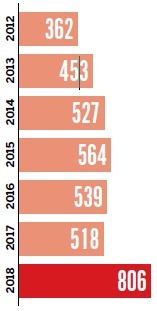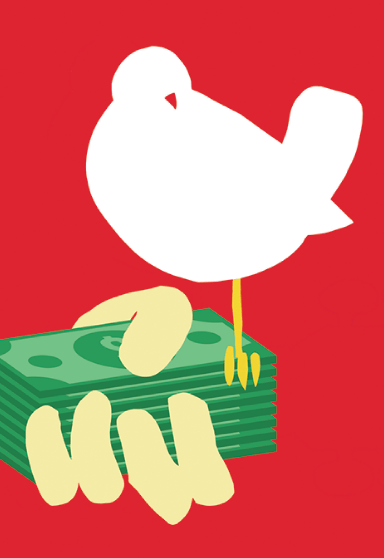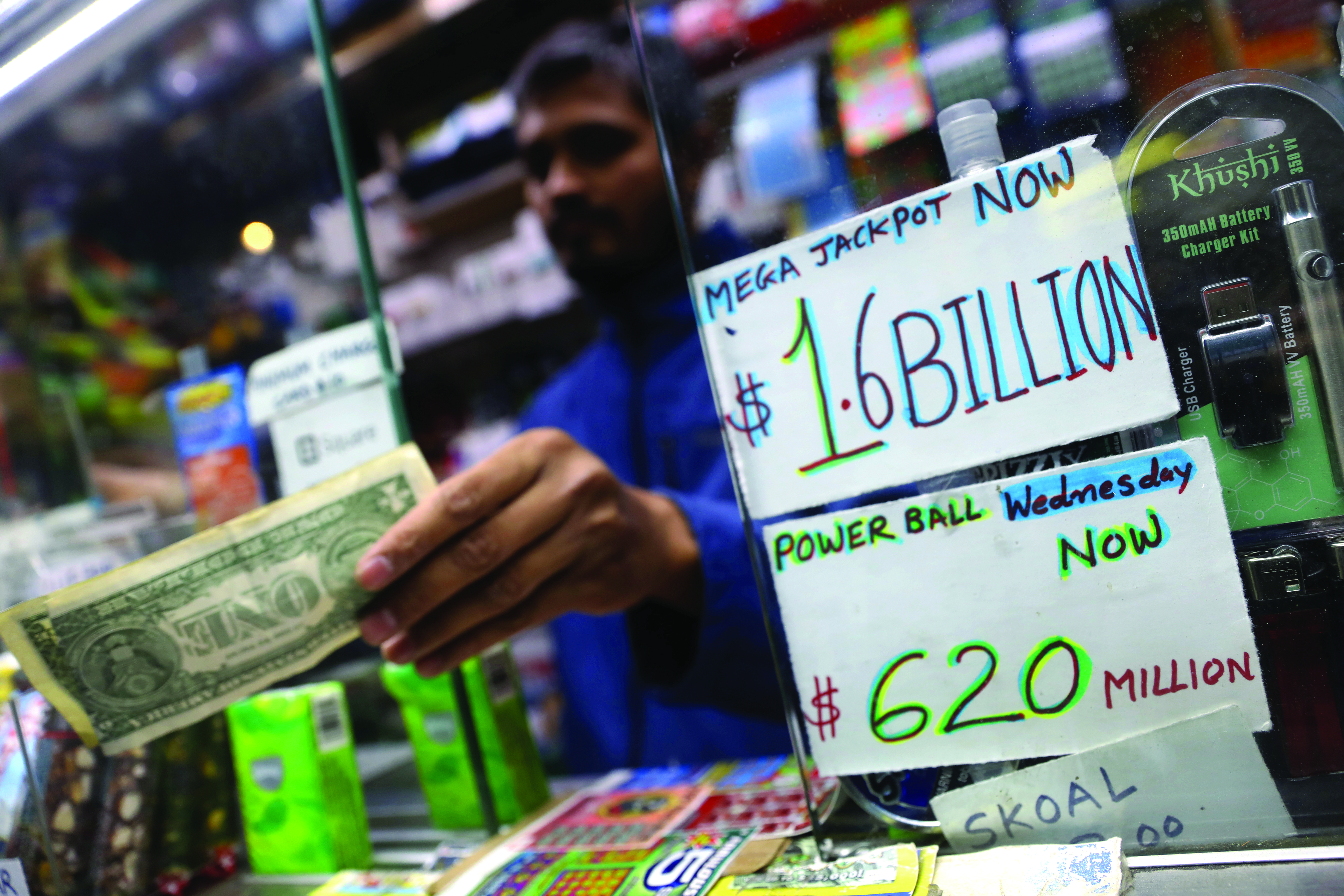Robo Investors
Wolf Richter, a keen observer of the markets (see p. 30), recently noted the lift the broader U.S. equity market has enjoyed as the result of the record pace of equity buybacks. luckbox couldn’t help but note the beneficiaries: the robotic investors who buy and hold. Thus, that legion of human robots has collectively earned the title of luckbox of the month for June. They qualify for the dubious title because their investment outcomes have exceeded their skills...for now.

Goldman Sachs asked a nerve-racking question and came up with an equally nerve-racking answer: What would happen to stocks “in a world without buybacks?”
The short answer? A lot would go wrong without buybacks, which raise stock prices, inflate earnings per share and prop up the markets. What’s more, they’ve been happening a lot lately.
In the fourth quarter of 2018, share repurchases soared 62.8% from a year earlier to a record $223 billion, beating the quarterly record set in the third quarter last year of $204 billion. It was the fourth quarterly record in a row, the longest such streak in the 20 years of the data. For the whole year 2018, share buybacks soared 55% year-over-year to a record $806 billion, beating the prior record of $589 billion set in 2007 by a blistering 37%!
Share buybacks had already peaked in 2015 and ticked down in 2016 and 2017. Then the Tax Cuts and Jobs Act of 2017 became effective on Jan. 1, 2018, and share buybacks skyrocketed.
The record buybacks in Q4 came even as stock prices declined on average by 5.3%.
On some bad days during the quarter, corporations were about the only ones left buying their shares.
The scale was enormous. For the year 2018, Apple (AAPL) topped all of the other buyback queens, repurchasing shares valued at $74.2 billion.
But it all worked out. As investors were selling, companies were buying back their own shares. And markets boomed. But what would happen to stocks in a “world without buybacks?”
Share buybacks were considered securities fraud under most conditions until 1982, but then became legal under a new set of loose rules. Now, members of Congress from both parties have targeted share buybacks and have proposed legislation. Goldman is apparently worried that notion might gain some traction, and so it created its scenario of a world without buybacks.
It would be a truly unspeakable, nay, an unthinkably gruesome nightmare, and no politician would want to take responsibility for it. Imagine a world in which stock prices would decline!
“Repurchases have consistently been the largest source of U.S. equity demand,” the Goldman strategists wrote in their note. “Without company buybacks, demand for shares would fall dramatically.”
Volatility would rise. To figure that out, the strategists looked at 25 years of quarterly blackout periods that restrict some buybacks around earnings release dates. The blackout periods start five weeks before earnings releases and last until two days afterwards. But they’re not blackout periods: They restrict only spur-of-the-moment buybacks. Scheduled buybacks around earnings release dates are not restricted.
By looking at stock performance during those blackout periods, the strategists discovered that, according to Bloomberg, “return dispersion and volatility during blackout windows have been higher compared with non-blackout periods: 16% versus 14%, and 16.4 points versus 15.8 points, respectively.”
In addition, earnings-per-share would dwindle. Share buybacks reduce the number of shares outstanding, and total earnings divided by fewer shares outstanding gives a larger earnings-per-share number. But without share buybacks, earnings-per-share growth and actual earnings growth would be the same. That would be devastating.
Without stock buybacks, demand for shares would fall dramatically. It’s too painful even to imagine

Buyback bliss S&P 500 Company Buybacks (in billions) »
They note that during the past 15 years, for the median S&P 500 company, earnings-per-share growth, powered by the reduction in the stock outstanding, was on average 2.6% higher than actual earnings growth.
So in a world without buybacks, “forward EPS (earnings per share) growth could be trimmed by 250 basis points,” they said. That type of reduction, they said, has historically corresponded to a 1-point decline in forward price-earnings multiples.” In other words, valuations would fall.
And then comes the big question of what happens to “demand.”
“Eliminating the largest source of equity demand could lower the demand curve if other investor categories do not replace the corporate bid from buybacks,” they warned. And the bull market would lose the force that powered it.
Letting the stock market fend for itself without relentless buybacks would become a true nightmare. Virtually no buy-and-hold luckboxes could hope to prosper.
Wolf Richter, editor in chief of wolfstreet.com, writes about business and financial issues with an eye toward exposing shenanigans, entanglements and opportunities. @wolfofwolfst














